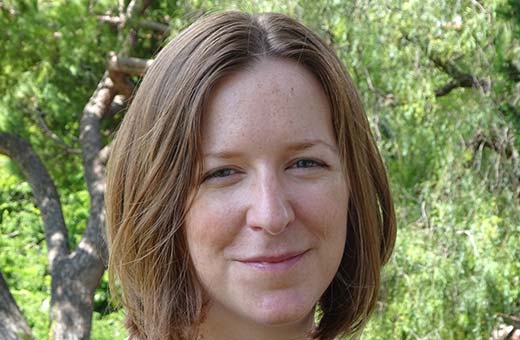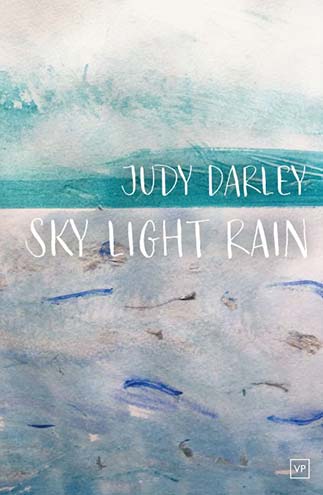Review by Kate Tyte
Darley was born in Thornbury near Bristol in 1977 and has published numerous short stories and flash fiction. Her debut collection Remember Me to the Bees was published in 2013. Sky Light Rain features a mixture of exclusive new stories and stories previously published in literary magazines. The stories range in length from one page flash fictions, to longer tales of about twenty pages.
Darley weaves together elements of fairy tales, eerie British folklore and psychological realism. Her stories feature ambivalent and complicated family relationships: sibling rivalry, divorcing couples, grief-stricken widows, parents incapable or unwilling to shoulder their responsibilities. But there are also the grandparents, aunts and foster parents who step into the breach, single parents who fight to protect their children, and siblings who come to the rescue. Love is never a simple, singular emotion in Darley’s tales. All blessings are mixed.
Many of Darley’s characters are broken people who retreat into a fantasy life: the inner world might overwhelm, or liberate, or simply be a parallel current running alongside the everyday. In ‘Untrue Blue,’ these secret stories have a touch of humour: at a support group meeting for the bereaved, the protagonist tunes out ‘…sifting their sorry stories into fairytale versions of the world […] There’s Maria Muffet whose daughter was fatally bitten by a poisonous spider; poor Jill, whose brother fell while rock-climbing…’. In ‘Fin,’ a woman in a collapsing relationship simply swims off with the fin whales who come to inhabit her flooded basement. In ‘Lodged,’ the bleeding of fantasy and reality take a more sinister turn, as a woman is haunted and finally possessed by the ghost of the previous tenant in her home.
Darley’s writing has an easy lyricism and is unsentimental, peppered with interesting metaphors: ‘The sky outside is pink-tinged as undercooked meat;’ ‘cypress trees stand up to their knobbly knees in the unruffled water;’ ‘the whole world is dressed in shades of bruises today.’ It’s full of little surprises.
She is also a fan of word-play, and shows how the secret languages and silly word games of families shape them. In ‘Elevated Truths,’ a mother is happy to tell little white lies while a father is obsessed with the truth at all costs. When the father’s fortunes take a turn for the worse he finds himself more tolerant of his daughter’s flights of fancy, such as ‘The Berlin wall fell because […] the wall defrosted and all the bricks melted.’ Where this would once have earned disapproval, now he laughs and says ‘end of the Cold War, eh?’ In ‘Lamp Black,’ a reluctant mother is desperate to keep her kids out of the house during the holidays so she can have time to paint. ‘Sometimes I think about being the one to leave, just walking out and letting them fend for themselves. But this is my home, my refuge. I was here first.’ Every day they play the ‘Where’s Daddy Now,’ game, and she gives them elaborate clues like ‘your father loves flannels,’ – the answer is Bath – and sends them off on a wild goose chase. This mother is just one in a catalogue of terrible mothers in the collection, but Darley has such a strong ability to convey ambiguous emotional states that she manages to make this woman sympathetic. She feels pride in her daughters’ cleverness, uncertainty and doubt about her role, terrible fear for their wellbeing, each shifting emotion captured with precision, with gestures, a marvel of show not tell.
Artistic endeavours, from ice-sculpture and millinery to simple handicrafts feature in many stories. Characters are brought back from the brink of despair and loneliness by making, or receiving a hand-made gift. There’s a knitted scarf from grandma, a feathery wedding hat. But handmade talismans can also bring dark forces to life. In ‘Shaped from Clay,’ a school teacher faces an eerie pupil. ‘The history of Ebie’s family was written deep into the soil, whereas I was a newcomer,’ she writes. ‘I’d only ever wanted to teach, but for all their rosy cheeks and plump bellies there was a starved look about the children that made me feel they needed me.’ Ebie creates a unicorn out of clay, and then mysterious things start to happen in the village. This story verges on horror, but stays just shy of being a genre piece.
The natural world is important throughout the collection but mother nature is not always kind or beautiful. Death, decay and children’s terrible morbid fascinations are ever-present. In ‘Invertebrates,’ Hansel and Gretel ritually dig up the witch’s rotting corpse each year and eat a feast with it watching them. Beloved cats eat birds, children kill their pets, nature takes back the city. But in ‘The Strawberry Thief,’ the reversion of the beloved is a welcome part of the grieving process, ushering in a rebirth.
A few of the stories turn from magical realism to fantasy or fairy tale proper. In ‘Apollo’s Offspring,’ a raven makes an excellent au pair, giving the children just what they need. In ‘Merrow Cave,’ a boy discovers that his grandmother is a sea monster, and ‘What Rises,’ is another water tale, inspired by the Welsh myth of the Lady of Llyn y Fan Fach. But for me the best stories in Sky Light Rain are those that seamlessly blend the real and the magical. They seem to illuminate the strangeness of everyday life, the little ways in which the past haunts people and places, in which the stories we tell shape us, and the hidden psychological landscapes that people carry around with them.
***
Kate Tyte was born in Bath and studied English Literature at Cardiff and York Universities. She worked as an archivist for over ten years, and now lives in Portugal where she works as an English teacher. Her literary essays have appeared in Slightly Foxed magazine issue 55, 59, and forthcoming, and her fiction has appeared on The Fiction Pool website, in STORGY magazine, and in Riggwelter issue 26.
Your support lets us know our work is appreciated. We’re a paying market, publishing brilliant new work of fiction and non-fiction that comes our way. As a small group of volunteers, we’re dedicated to writers, readers, and publishers and want to keep our site ad, pop-up, and fire-wall free. Please do consider supporting us in whatever way you can. Thank you.



